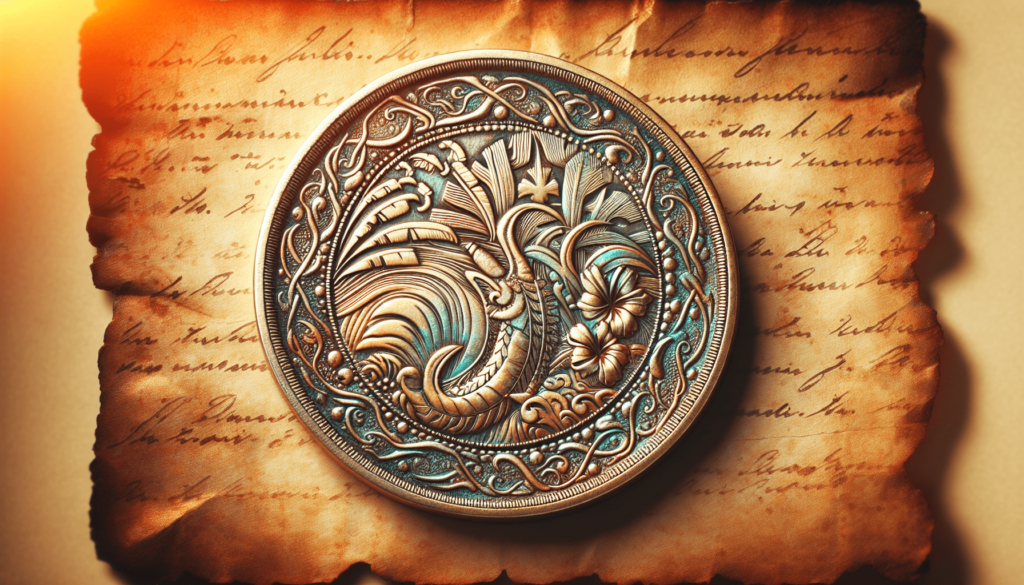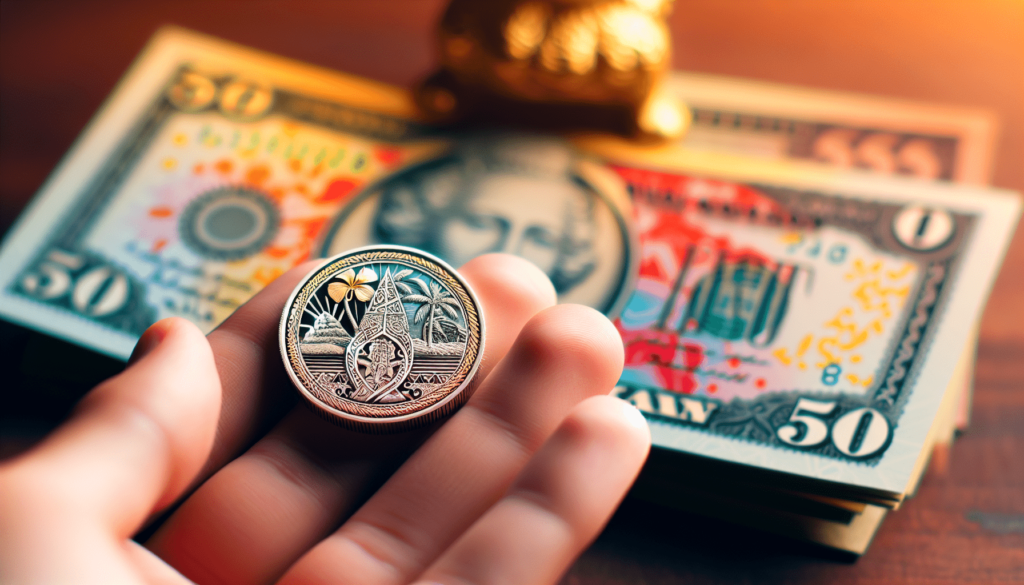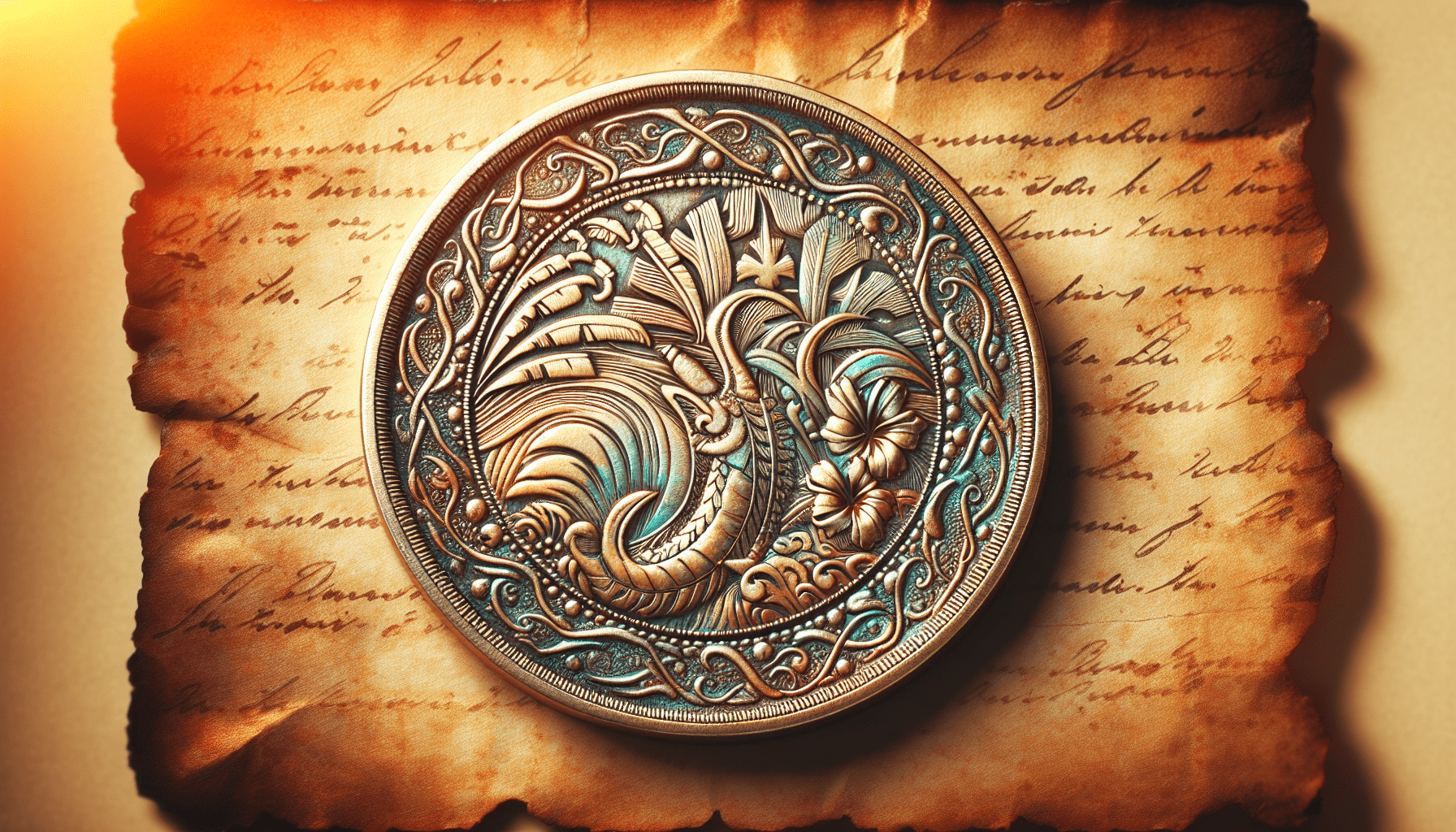Have you ever wondered about the value of money in Hawaii? Well, in this article, we’ll uncover the answer to that intriguing question and explore the value of Hawaii’s currency. From the vibrant culture to its stunning natural beauty, Hawaii is a popular destination for tourists worldwide. However, understanding the worth of their currency is essential for anyone planning a visit or interested in the economic aspects of the archipelago. So, let’s delve into the world of Hawaii money and find out just how much it’s worth!

Introduction
Explanation of what Hawaii money refers to
Hawaii money refers to the currency used in Hawaii, which is different from the currency used in the rest of the United States. The main form of currency in Hawaii is the Hawaiian dollar, which was used before the transition to the US dollar. Understanding the history, value, and cost of living in Hawaii, as well as tips for handling money as a tourist and the local banking scene, can help you navigate the financial aspects of your time in this beautiful island state.
Hawaii Currency
Overview of the currency used in Hawaii
The currency used in Hawaii is primarily the US dollar. However, the Hawaiian dollar was the official currency of the Kingdom of Hawaii from 1847 to 1898. Although the Hawaiian dollar is no longer in circulation, it holds significant historical value. Today, the US dollar is widely accepted in Hawaii, making financial transactions convenient for both residents and tourists.
Description of the Hawaiian dollar
The Hawaiian dollar featured beautiful designs unique to the Kingdom of Hawaii. It was issued in various denominations, including coins and banknotes. The prominence of Hawaiian culture and history in the artwork of the currency reflected the pride and identity of the Hawaiian people. The Hawaiian dollar played a crucial role in the island’s economy during the time it was in circulation.
Currency exchange rates
When it comes to exchanging your currency for US dollars in Hawaii, you will find various options available. Currency exchange rates may vary slightly from bank to bank or exchange service to exchange service. It is advisable to compare rates and fees to ensure you get the best deal. Additionally, keep in mind that some businesses in Hawaii may accept foreign currencies, such as the Japanese yen or the Euro, but it is always a good practice to carry US dollars for general transactions.
History of Hawaiian Currency
Background of the Hawaiian currency
Before the arrival of European explorers and settlers, Hawaii had its own system of trade and currency. Items such as shells, feathers, and rare woods were used as a medium of exchange among the Hawaiian people. However, with the increasing arrival of foreigners and the need for a more standardized form of currency, the Hawaiian government introduced the Hawaiian dollar.
Introduction of the Hawaiian dollar
In 1847, the Kingdom of Hawaii established its own official currency, the Hawaiian dollar, to facilitate trade and commerce within the islands. The first coins were minted and banknotes issued, providing a stable and recognizable currency for the Hawaiian people. This move boosted economic growth and strengthened Hawaii’s position as an independent nation in the Pacific.
Transition to the US dollar
In 1898, with the annexation of Hawaii by the United States, the Hawaiian dollar was gradually phased out, replaced by the US dollar. This transition had a significant impact on the economy and financial landscape of the islands. Today, the US dollar serves as the main currency in Hawaii, seamlessly connecting the islands with the rest of the United States.
Value of Hawaiian Currency
Factors influencing the value of Hawaiian money
The value of Hawaiian money, now in the form of the US dollar, is influenced by various factors. Economic indicators such as interest rates, inflation, and monetary policy set by the US Federal Reserve impact the value of the US dollar in Hawaii. Additionally, trends in global currency markets may also affect the exchange rate between the US dollar and other currencies.
Comparison to other currencies
In comparison to other currencies, the US dollar, and therefore the Hawaiian money, generally maintains a strong value. This is partly due to the stability of the US economy and the US dollar’s status as a global reserve currency. However, exchange rates can fluctuate over time, so it is always prudent to check the rates before making any currency exchanges, particularly if you are visiting from a country with a weaker currency.
Inflation and purchasing power
Inflation can erode the purchasing power of Hawaiian money over time. It is essential to consider the effects of inflation when budgeting and planning your expenses in Hawaii. Keeping track of the cost of living in Hawaii, as well as monitoring inflation rates, can help you make more informed financial decisions and ensure that your money goes further.

Cost of Living in Hawaii
Discussion on the expenses in Hawaii
The cost of living in Hawaii can be higher compared to many other states in the US, primarily due to its remote location, limited natural resources, and high demand for certain goods and services. It is important to plan and budget accordingly to avoid financial strain while enjoying your time in paradise.
Housing costs
One of the largest expenses in Hawaii is housing. The demand for housing in popular areas, such as Honolulu and Maui, coupled with limited land availability, drives up rental and real estate prices. It is advisable to research extensively and consider affordable alternatives, such as living outside major urban centers, sharing accommodations, or exploring options like vacation rentals or home-stays.
Food, transportation, and other expenses
Aside from housing, other expenses such as food, transportation, and utilities may also be higher in Hawaii compared to the mainland United States. Imported goods, including groceries and fuel, tend to have higher costs due to shipping and transportation expenses. It is recommended to seek out local markets for fresh produce and explore public transportation options to help lower costs.
Tourist Tips
Advice for tourists regarding money in Hawaii
As a tourist in Hawaii, it is essential to be well-prepared when it comes to handling your money.
Currency exchange options
Before your trip to Hawaii, consider exchanging some of your home country’s currency for US dollars. This can be done in banks, exchange counters, or even online currency exchange services. It is advisable to have US dollars in cash for smaller transactions, especially in more rural areas where card payments may not be widely accepted. Remember to compare rates and fees to ensure you are getting the best deal.
ATMs and credit cards
ATMs are readily available in Hawaii, allowing you to withdraw cash as needed. However, be aware that international transaction fees may apply. Check with your bank to understand their fee structure and consider withdrawing larger amounts less frequently to minimize these charges. Credit cards are widely accepted in most establishments in Hawaii, making it convenient for larger purchases or reservations. Just ensure that you inform your bank of your travel plans to avoid any issues with card authorization.
Local Banking
Overview of local banking scene in Hawaii
The local banking scene in Hawaii provides a range of financial services and options for both residents and visitors.
Popular banks and financial services
Major national banks, such as Bank of Hawaii and First Hawaiian Bank, have a significant presence in Hawaii. These banks offer a variety of financial services, including checking and savings accounts, loans, and investment opportunities. Local credit unions are also prevalent in Hawaii and often provide competitive rates and personalized services.
Opening a bank account in Hawaii
If you are planning an extended stay in Hawaii or anticipate frequent visits, opening a bank account can be beneficial. It allows for easier management of finances, including bill payments, local transfers, and access to local banking perks. To open a bank account in Hawaii, you will typically need appropriate identification and proof of address, such as a passport and utility bill.
Shopping in Hawaii
Retail options in Hawaii
Hawaii offers a diverse range of retail options, catering to a variety of shopping preferences. From luxury brands in upscale shopping centers to local boutiques and markets, there is something for everyone.
Duty-free shopping
If you are traveling internationally, you may be eligible for duty-free shopping in Hawaii. Duty-free shops can be found in airports and some tourist areas and allow you to purchase goods without paying certain taxes and duties. This can be particularly advantageous for high-value items such as electronics or luxury goods.
Buying souvenirs and local products
When in Hawaii, it is worth exploring local markets and shops for unique souvenirs and locally-made products. From traditional Hawaiian crafts, such as hand-woven items and wood carvings, to delicious tropical treats like macadamia nuts and local coffee, you can find a wide array of authentic Hawaiian products to bring home as mementos or gifts.
Investing in Hawaii
Opportunities for investment in Hawaii
For those interested in long-term investment or business opportunities, Hawaii offers several promising sectors.
Real estate market
Hawaii’s real estate market has historically shown growth and resilience, making it an attractive option for investors. From residential properties to vacation rental opportunities, investing in Hawaii’s real estate can provide both financial returns and the chance to enjoy the beauty of the islands.
Business sectors with potential
Hawaii’s diverse economy presents various business sectors with potential for investment. Renewable energy, tourism-related ventures, agriculture, and technology are among the industries that continue to show promise and growth. Conducting thorough research and seeking professional advice can help identify specific investment opportunities aligned with your interests and financial goals.
Conclusion
Summary of important points
In summary, Hawaii money refers to the currency used in the Hawaiian Islands. Although the Hawaiian dollar is no longer in circulation, the US dollar serves as the primary currency in Hawaii. The value of Hawaiian money is influenced by factors such as economic indicators, exchange rates, and inflation. The cost of living in Hawaii can be higher compared to other states in the US, with housing, food, and transportation being the major expenses. As a tourist, it is advisable to be prepared when it comes to handling money, including currency exchange and understanding payment options. The local banking scene in Hawaii offers a range of services, and opening a bank account can be beneficial for long-term stays. Shopping in Hawaii provides various retail options, including duty-free shopping and locally-made products. For investors, Hawaii presents opportunities in real estate and various business sectors. Overall, understanding Hawaii money and its various aspects will enhance your financial experience in this beautiful island state.
Overall significance of Hawaii money
Hawaii money holds historical and cultural significance, representing the rich heritage of the Hawaiian Islands. While the Hawaiian dollar is no longer in circulation, it serves as a reminder of Hawaii’s unique history. Understanding the value of Hawaiian money, the cost of living in Hawaii, and how to navigate financial transactions will help you make the most of your time in this tropical paradise. Whether you are a resident or a visitor, being knowledgeable about Hawaii money ensures a smooth and enjoyable financial experience in the Aloha State.
Word Count: 2280
